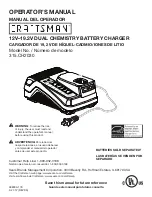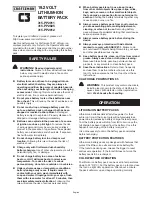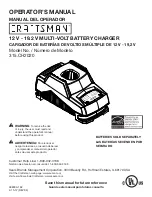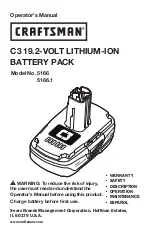
Operation
EVSM-V01-R1 Installation and Operation Manual
SecuriCharge Intelligent EV Charging Unit
December 2022
Page
30
of
33
About Charging Cables and Sockets
The points below apply to Rolec cables and will be similar for cables made by other
manufacturers. Always follow the manufacturer's advice.
1. Charging cables should be fully uncoiled when in use.
2. Charging cables should not be stretched or place strain on the chargepoint or
vehicle connections.
3. Charging cables should be routed between the chargepoint and the vehicle so as
to not cause an obstruction or trip hazard.
4. Charging cables must NOT be left connected to the chargepoint when not in use
unless permanently locked into the socket.
5. After use, charging cables should be removed from the vehicle first, and then
removed from the chargepoint.
IMPORTANT:
Some chargepoints feature a ‘semi-permanent’ anti-theft cable locking
device allowing the cable to be left connected at the end of a charge session.
However, some makes of cable are less robust than others and to prevent damage
and ensure a good connection, the cable must be unplugged on a regular basis,
allowing the connectors to be checked for damage or contamination.
CAUTION: Equipment Damage
Socket chargepoints include a cable locking device (Hatch Lock) to reduce the
opportunity of cable theft. The lock is engaged when the charging session is started
and is disengaged when the charging session is ended.
Attempting to remove the cable from the chargepoint before the session is ended or
before disconnecting the cable from vehicle, may cause the lock to become
permanently engaged and prevent removal of the cable.
6. Charging cables should be stored in a dry, undercover location where the cable
and plug cannot be damaged or become contaminated.
x
If the plugs a are dry, make sure the rubber caps are fitted to prevent entry of
debris.
x
If the plugs are wet, allow them to dry before fitting the rubber caps.
IMPORTANT:
Rubber plug caps will not fully protect against the ingress of water but
may prevent water from escaping which, over time, may overcome the IP rating of
the plug assembly.
7. Charging socket covers (flaps) should be closed after the plug is removed.
8. Damage to charging sockets should be inspected by an appropriately qualified
engineer and the charging pedestal should be electrically isolated if damage
affects safety.






































